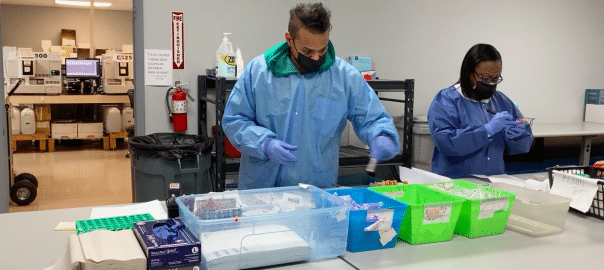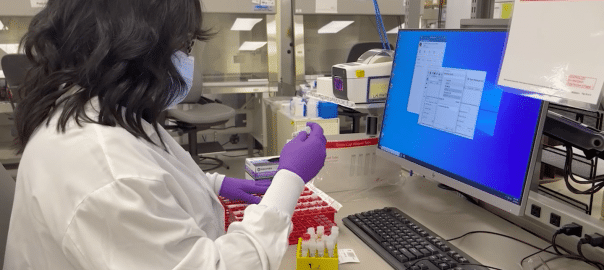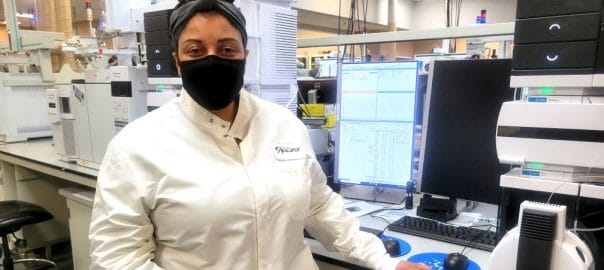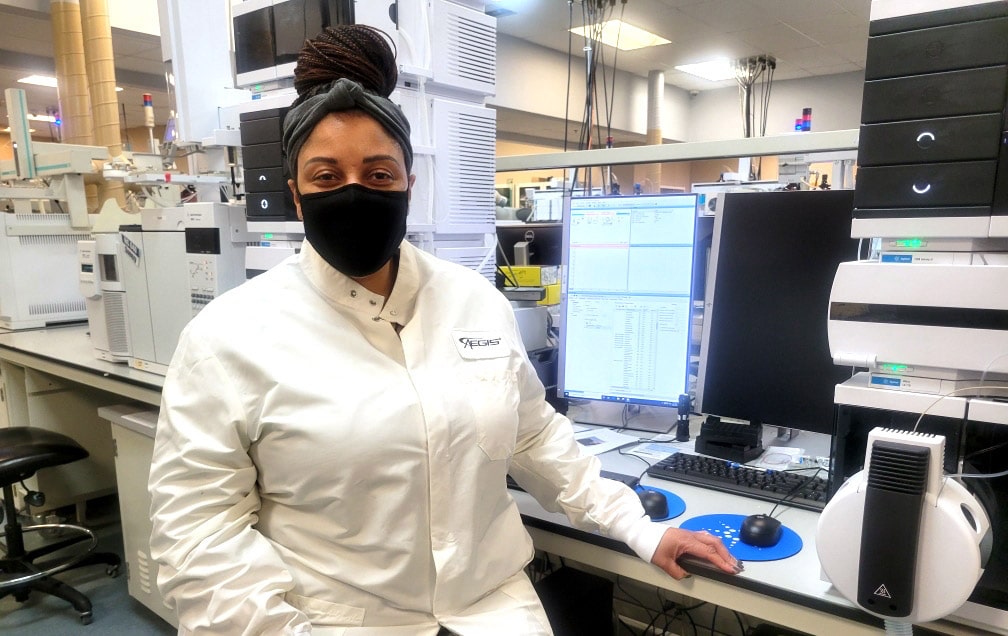Routine lab services aren’t typically top of mind when thinking about nursing homes or the care they provide. Yet, hours before dawn, phlebotomists from American Health Associates (AHA) make the trip to nursing homes and long-term care facilities across the country to collect specimens from patients who depend on routine diagnostic tests to monitor their health. When it comes to vulnerable populations like nursing or long-term care residents, every minute counts. That’s why AHA prides its phlebotomists and lab technicians as “minutemen.”
“We do try to train our phlebotomists to be the kind of people you want to see by your bedside with a needle at 4 o’clock in the morning,” notes Amelia Waters, Vice President of Strategy and Operations at AHA. “[Phlebotomists] are really very much unsung heroes.”
The ability to listen to and understand patients is something that is innate to the phlebotomists at AHA, whom Amelia describe as the “face of the company.” In addition to the technical skills required to serve this population, Amelia highlights the social skills that AHA phlebotomists leverage to build trust with patients, many of whom are elderly and have pre-existing conditions. “On the elderly, it can be tricky trying to draw blood because they’re older or the veins are smaller, thinner, collapsed,” Amelia explains. “You need to be great with people in order to do this well.”
AHA’s commitment to patient care extends further than the face-to-face interactions during regular specimen collection. Understanding that time and quality is critical for patients, Amelia introduced a new online check-in system for phlebotomists to help streamline the clinical laboratory process and improve the tracking and accuracy of the records of the specimen’s life, such as the time the specimen was dropped off, the facility it came from and the temperature at which it arrived.
The main goal for Amelia’s team is to process and investigate samples in a timely and accurate manner as the results are very time-sensitive. “Things can progress very quickly, so depending on the results, if we draw it in the morning and we turn the results in by the afternoon, the doctor is able to make a decision,” Amelia points out. These needs were especially elevated as a result of the COVID-19 pandemic, when long-term care facilities were some of the nation’s hot spots for the spread of the disease.
“There’s tons of respiratory viruses out there, all of which are different from COVID, but many of them have very similar sort of symptoms, so being able to tell the difference quickly is important,” says Amelia.
Watch the full interview with Amelia to learn more about the work that happens behind-the-scenes at American Health Associates.



